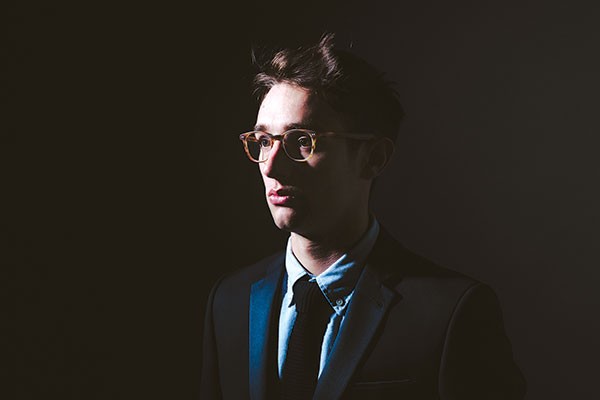If you caught San Fermin at Brillobox last October, you might not have noticed Ellis Ludwig-Leone: He stays behind the keyboards. But Ludwig-Leone, 24, is the mastermind of San Fermin. Shortly after graduating from Yale, he recruited several friends to create the musically and emotionally multi-layered baroque pop album that became the quasi-band's debut, one that made a slew of best-of-2013 lists. A geek blossoming into a rock star, Ludwig-Leone chatted with City Paper before his return to Pittsburgh to play The Warhol.
What set you on the path to pursue music?
We always had a lot of Beatles albums lying around when I was a kid. I remember being really impressed by Abbey Road, about how all the songs on the second side seemed to fold into and out of each other. ... Paul Simon's Graceland was another formative record. He seemed to be saying big things in these bite-sized songs.
I was always more focused on basketball in high school. My parents also took me to learn classical piano at this university in Newport, R.I. They were both [visual] art professors, and I was steeped in that tradition that if you are going to learn something, you should know the history of it and learn it in a classical way. I sort of kept that secret from my friends. I didn't think about it seriously until the end of high school, when I went to a summer camp at the [Berklee College of Music] where I met Allen [Tate], who is currently our lead singer. He was also a basketball player and we really got along. It was a very formative relationship because it helped me indulge this thing I kept secret.
Why keep it a secret?
Well, it wasn't so much of a secret as something I never talked about. It was never the thing when I was in high school. It was this procedure every Thursday. We would drive an hour away and I would learn these long Russian pieces. It wouldn't have awarded me any cool points.
What was it like studying music at Yale?
They had a really good program. I had my own classical ensemble when I was there. I wrote the music and we would perform the pieces, about 10 or 12 of us. That was the prototype for this band in some ways. ... Studying classical music and that great repertoire opens your mind on how to write music, about how something grand can be built from these tiny cells, and the music builds up as the cells grow and change.
This is a concept album where the male- and female-sung songs are responding to each other. Why that approach?
As someone who doesn't sing, I knew I would be writing for Allen. As I was writing, I wanted a voice to push back against what this guy is saying. It was super-liberating to be writing for characters, because they could say anything. Neither was me or had to express what I was feeling. I could just push one to an extreme and the other would come back as an elastic response. In that song "Renaissance," the male character is so melodramatic. He's almost suicidal, and on the next song the female character says something like "Your melodrama is embarrassing for me." I love to build these things up and then cut them off at the knee.
You also have a big, multi-layered sound. How do recreate that live? How big is your touring band now?
We have eight people now. Touring has turned this from a solo project with some guests into a real band. It's more about the performances than the songs now. ... Eight performers on stage is a lot — fewer than the 22 who were on the record, but still a lot of lushness comes through.
Your record came out of nowhere in September and then it was on all of these year-end best-of lists. Does it feel like your life is changing?
I go back and forth on that. I just get up, get in the van and drive for 10 hours and play the show, and that keeps you grounded. When we were in L.A. and did a show at the Museum of Natural History with an orchestra — that felt big. ... We just had a show at the Music Hall of Williamsburg. New York is where I live and where all my friends are, and I didn't even have to ask them to get tickets. By the time they were looking, they were all sold out, so that was cool.














